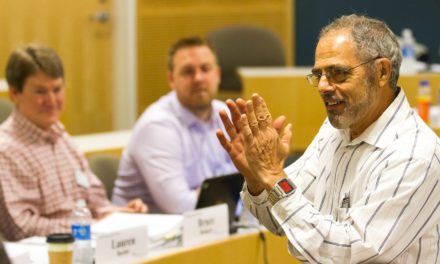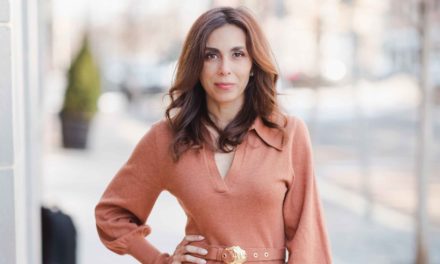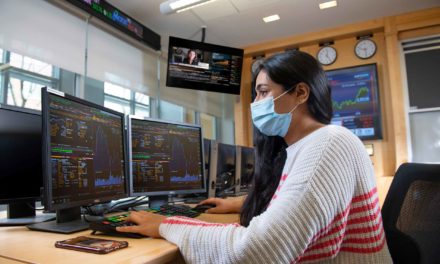How John and Karen Arnold made philanthropy a cornerstone of their success
When Penn State Smeal College of Business Dean Charles H. Whiteman celebrated his 10th year at the helm of one of the largest business schools in the nation, business leaders and philanthropists John and Karen Arnold wanted to do something special to show their appreciation for his “great leadership over the last decade.” They chose to make a gift to Penn State to endow the college’s dean’s chair.
John Arnold said Penn State Smeal, where he earned an MBA in 1987, instilled in him the foundational tools he needed to transform his family business. That transformation paid dividends and positioned the Arnolds to fuel their passion for making the communities they care about better places to live, work, and play.
As the inaugural John and Karen Arnold Dean, Whiteman says the Arnolds’ gift will provide financial resources for him and his successors to pursue bold educational opportunities, support innovative faculty research, and anticipate emerging global trends in industry, education, and society.
“John Arnold is a model of success. He’s taken his Penn State Smeal MBA and applied it to become an extraordinarily successful businessman and a trusted advisor, and he and Karen have become exceptional philanthropists,” Whiteman says.
The Arnolds’ philanthropy extends far beyond Penn State and reflects a deep passion for giving back that, perhaps more than anything, defines their ambitions.
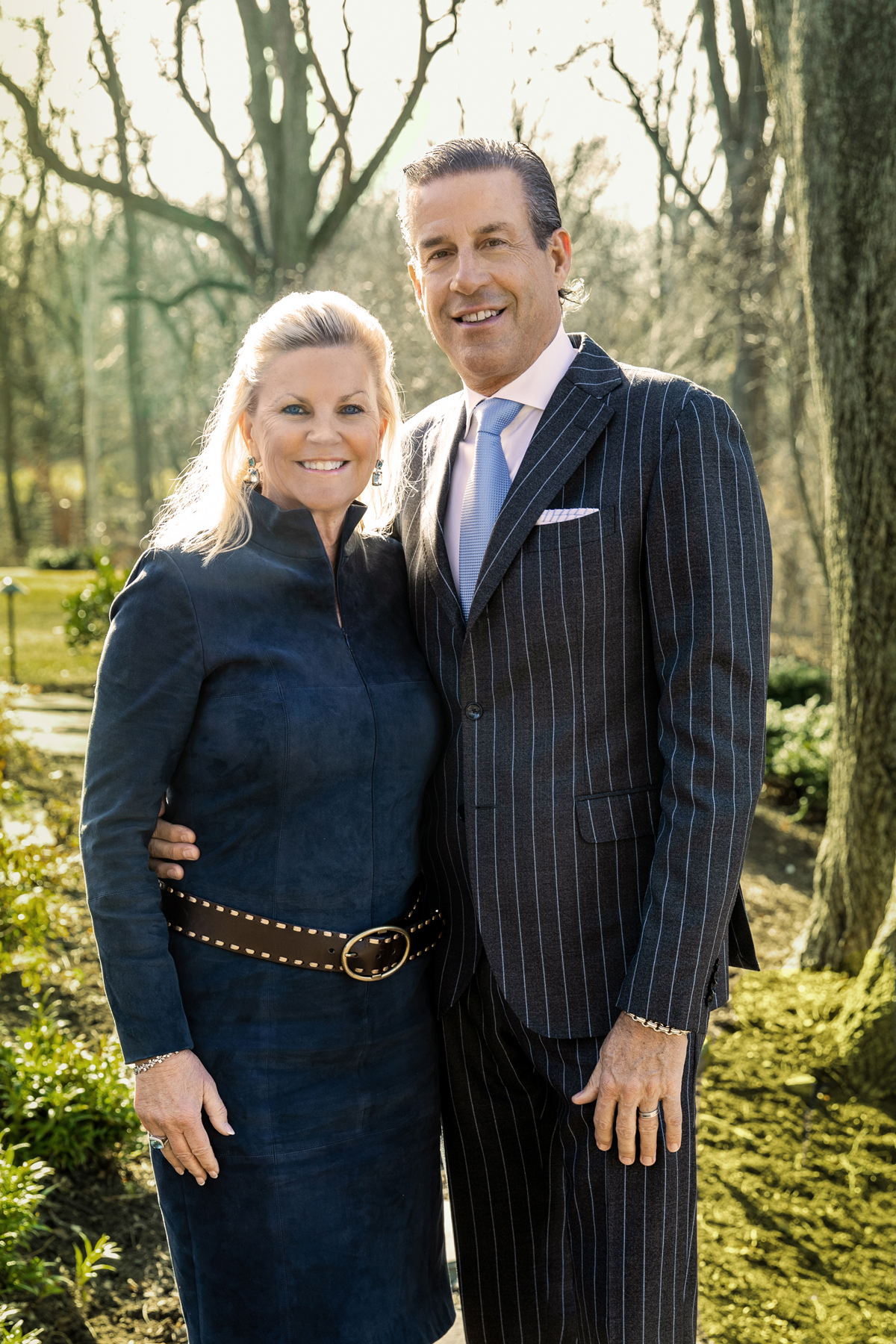
John and Karen Arnold are passionate about making their communities better. Their success in business has positioned them to positively impact numerous mission-driven institutions, including Penn State Smeal.
THE KINDNESS COALITION
The couple met in 2014 and married two years later. Karen Arnold will be the first to tell you that, as a couple, she and John make most of their important decisions at the dinner table. Those decisions increasingly connect to their philanthropic activities.
The Kindness Coalition, a charitable foundation the couple established in 2015, is a leading example.
They say their mission is simple: to lend a hand to people in need by providing funding and support to health and human service organizations located primarily in central Pennsylvania and Berks County.
When it comes time to choose which organizations will receive grants each year, that gets decided at the dinner table.
Reading Hospital is just one of many local organizations supported by The Kindness Coalition. The hospital introduced a mobile mammography bus last fall to provide screenings for uninsured or underinsured women in Berks County.
“To know that this bus will go into underserved areas and offer mammography to women that wouldn’t otherwise have access, and to know that The Kindness Coalition played a role in making it happen is a wonderful feeling,” says Karen Arnold, who serves as president of the organization.
“Last year, we were also able to provide funding to a local women’s shelter to renovate their kitchen. When it’s done, residents will be able to cook and eat together and have a real sense of community during a challenging time in their lives.”
Since its inception, the foundation has awarded millions in grants.
“Last year, we were able to provide funding to a local women’s shelter to renovate their kitchen. When it’s done, residents will be able to cook and eat together and have a real sense of community during a challenging time in their lives.”
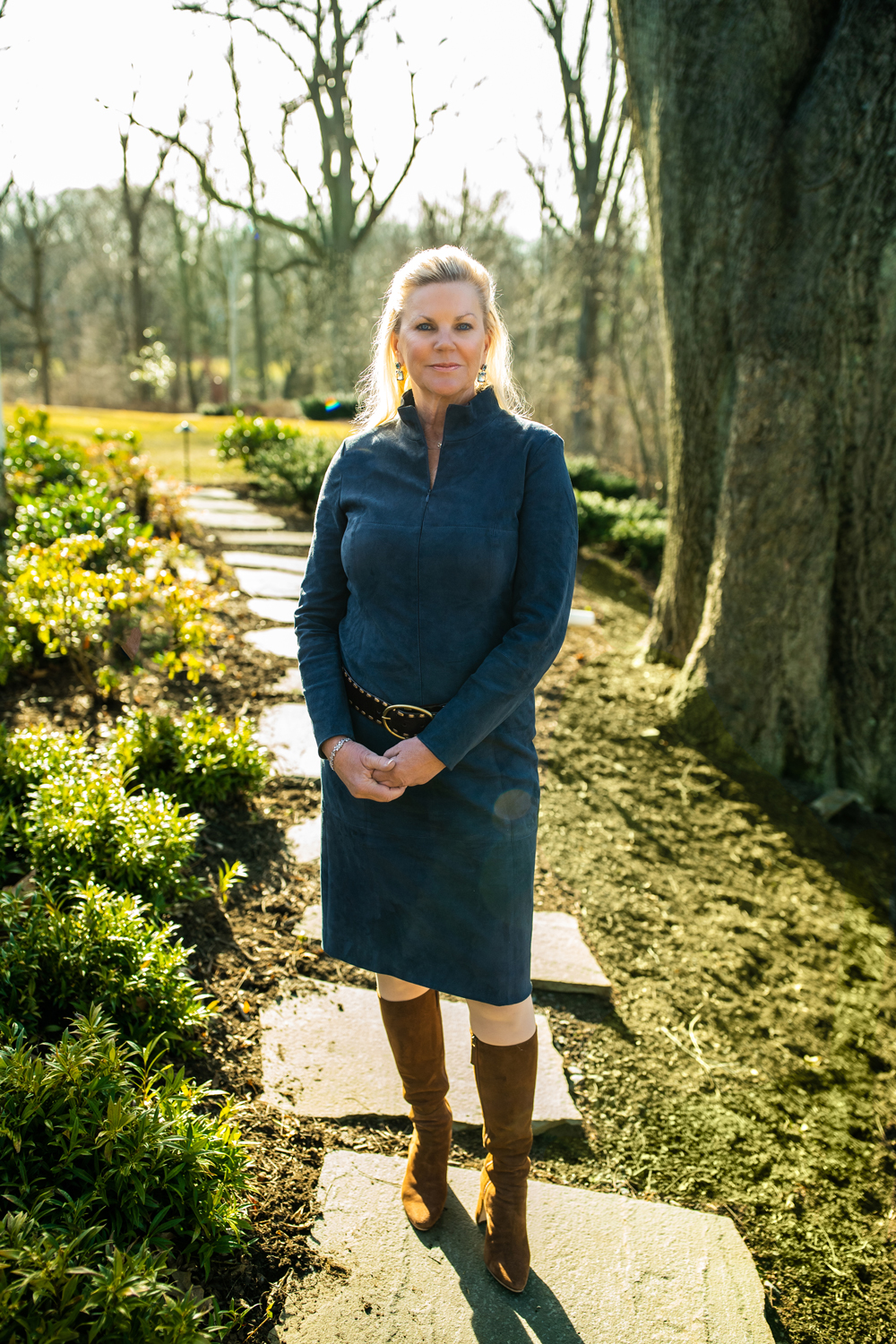
Karen Arnold and her husband, John, founded The Kindness Coalition in 2015. The charitable foundation provides funding and support to health and human service organizations located in central Pennsylvania and Berks County.
Hedging his bets: How John Arnold transformed a Family Business
The Kindness Coalition was just starting as John Arnold was preparing to wind down his nearly 30-year-long professional career, which began when he joined the Arnold family business in 1987.
The timber, coal, heating oil, and coal burner delivery and service company was founded by his grandfather and great-grandfather in 1924. The Arnolds entered the fuel oil distribution business in 1953, and by 1990, had re-focused on petroleum pipeline terminals and industrial and automotive lubricants.
“People know about oil wells, they know about refineries, and they know about convenience stores. They also know that something happens in the middle, and that’s what we did,” John Arnold says.
When John Arnold joined the wholesale portion of the business — Petroleum Products Corporation (PPC) — in 1987, they were purchasing unrefined product from refiners in Philadelphia and New York Harbor and reselling it to home heating distributors and gasoline retailers.
“By the time you buy a product, stage it at the pipeline gathering point, ship it over the pipeline, move it to your storage tanks, hold it as inventory, and finally sell it to unbranded retailers, the process might take a month,” he says. “Because the product needed to be competitively priced when it went to market, there could be a lot of volatility in earnings. If the market went up, we’d make money. If the market went down, we’d lose it.”
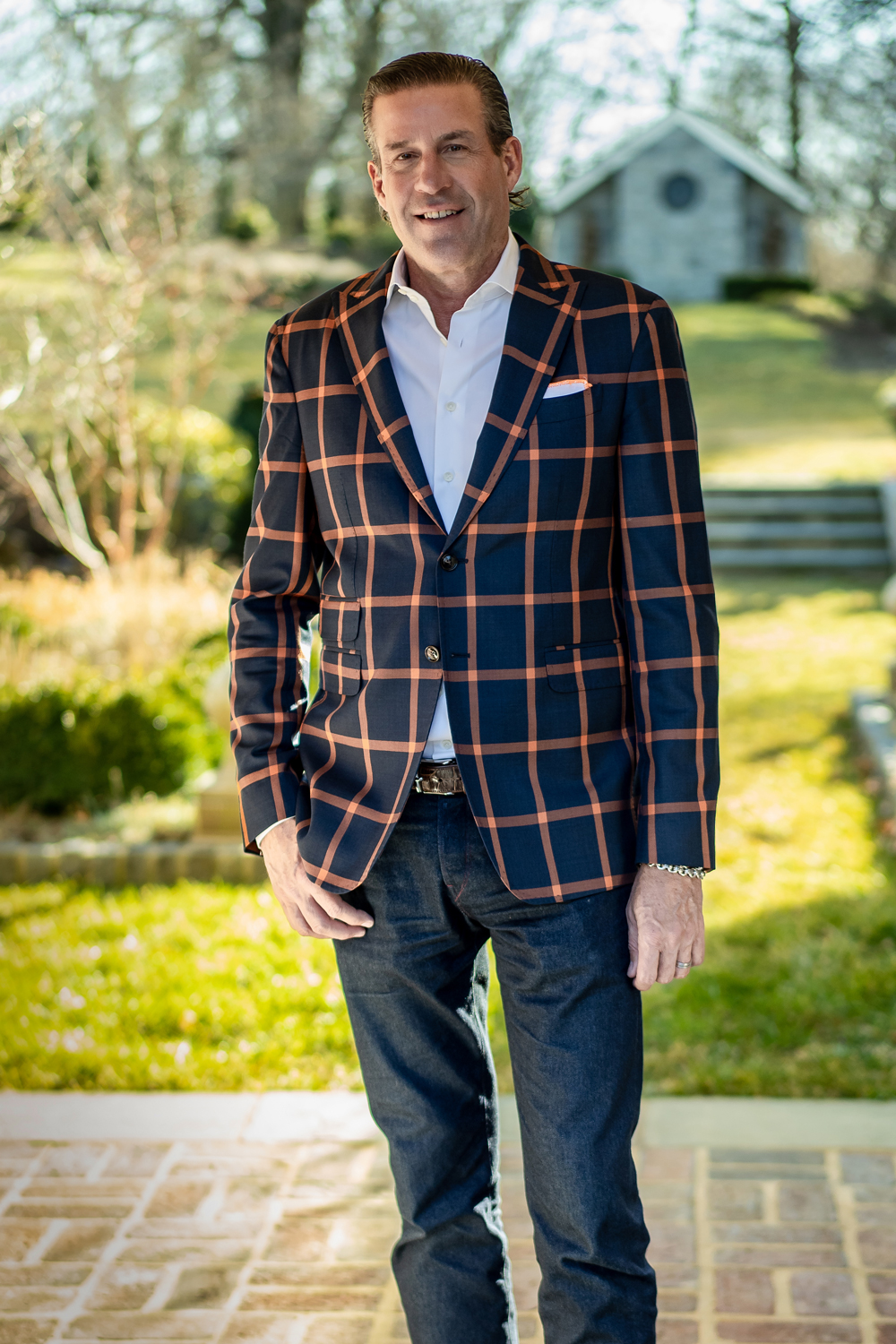
When his father died unexpectedly in 1994, John Arnold became the fourth generation to lead the family business. The company grew 20 times in volume and 250 times in profitability over the next two decades.
“We did it in a way
my dad would have been proud of.”
Fortunately, John Arnold learned how to reduce that commodity price risk during his years at Penn State.
“People had started trading commodity futures to hedge against risk in the ‘70s, but when I joined the company, we weren’t doing that yet. What I learned in the Penn State Smeal MBA program allowed me and a colleague to develop a terrific hedging program,” he says.
By making investments to offset the risk of adverse price movements in the commodities market, John Arnold says they were able to smooth company earnings and open the door for other opportunities.
Because PPC was a commodity-based business, he says there was no way to really differentiate their product to grow their business. That left the throughput piece of the business (the volume of product moved over their pipeline for others), which at the time accounted for less than 10 percent of their overall revenue.
“We started to consider if it would be possible to buy pipeline terminals in our markets, close them, tear them down, and then build large industry facilities in their place,” John Arnold says.
The firm seemingly faced insurmountable obstacles: the existing terminals were owned by large companies such as Exxon, Mobil, Texaco, and BP; and they would require substantial investments for tanks, loading racks, and other capital expenses.
If John Arnold was successful, customers would be able to come in and pick up their own product. With no labor costs, he expected variable costs would be low.
“We had our strategy, and we relentlessly pursued it,” he says. “Shell became the first major company to give us their throughput business. It was a seminal moment for us to have a major oil company as a customer.”
When the Exxon Valdez ran aground in March 1989, spilling 11 million barrels of oil in Prince William Sound, Alaska, John Arnold said Exxon started to look for ways to mitigate future risk. “They got out of several business lines, including their pipeline terminals, and gave us a lot of their business after that accident. It was a huge turning point for us, and things really took off from there.”
When his dad died unexpectedly in 1994, John Arnold became the fourth generation to lead the family business. “It came as such a shock,” he says. “My dad was a terrific role model and I learned so much working with him.”
The company grew 20 times in volume and 250 times in profitability over the next two decades. Sales exceeded $3 billion in a year.
“We did it in a way my dad would have been proud of,” John Arnold says. “We treated people right. We had open lines of communication; the best ideas ruled, regardless of where they came from, and we offered profit sharing to reward our employees for their hard work.”
John Arnold’s success helped put the couple in a position to give back to Penn State Smeal with gifts to assist students and faculty in the Department of Management and Organization, the Department of Finance, and the MBA program. Across the University, the Arnolds have also supported scholarships and other needs in areas including Intercollegiate Athletics, Penn State Health, and The Arboretum at Penn State.
At its peak, PPC had approximately 9 million barrels of storage capacity with terminals located across Pennsylvania, including Allentown, Altoona, Coraopolis, Dupont, Pittsburgh, Neville Island, Harrisburg, Northumberland, Sinking Springs, Mechanicsburg, Highspire, and Lancaster. Sales volume exceeded 4 billion gallons a year.
When Arnold recognized that there were limited opportunities for continued growth in the mid-2010s, he decided to sell the business.
Wanting to assure potential buyers that there were no environmental concerns, Arnold commissioned a Phase II Environmental Assessment. These studies, conducted by trained, licensed, and experienced geologists and engineers, looked for the presence, or absence of, petroleum products or hazardous substances in the subsurface of all of PPC’s properties.
“As we expected, our facilities were clean,” he says.
He sold the business to ArcLight Capital Partners in 2015 but remained at the helm of PPC Lubricants, the industrial and automotive lubricants business he started with just six employees at the turn of the 21st century.
Under John Arnold’s leadership, PPC Lubricants became the U.S.’s fourth largest distributor (and largest privately held distributor) of commercial, industrial, and automotive lubricants, edible greases for the food industry, oil and gas drilling fluids, chemicals, and diesel exhaust fluid.
When John Arnold’s son, who graduated from Penn State in 2017, pursued an MBA in Australia and made a permanent home there, John decided it was time to sell that business, too. The sale was completed in 2021.
A Passion for Giving Back
Now retired, the Arnolds spend more time working with The Kindness Coalition and their other numerous volunteer commitments.
Karen Arnold’s enthusiasm for The Kindness Coalition is rivaled only by her work for the Board of Trustees for the U.S. Ski and Snowboard Foundation.
An avid skier herself, she grew up idolizing competitive skiers and says she was shocked to learn that almost all the funding for members of the U.S. Ski and Snowboard Team comes from the athletes themselves, or from private donations.
“During my time with the board, we’ve been working to raise $20 million to establish an endowment to fund travel and other expenses for team members,” she says. “I’m very proud to say that we’re less than $500,000 from our goal.”
In 2020, Karen Arnold was appointed to the board of Penn State St. Joseph Medical Center Foundation, and she’s previously worked with other nonprofit organizations, including Berks County Red Cross, Opportunity House, and the Junior League of Reading.
John Arnold, meanwhile, has been a member of the Penn State Smeal Board of Visitors since 2001. In 2019, he was awarded the Penn State Distinguished Alumni Award and named a Penn State Presidential Counselor.
He is on the executive committee of the Vail Valley Foundation, where he serves as the finance and investment chair, and the board of Alvernia University, where he chairs the innovation subcommittee. John Arnold previously served on the boards of the Harrisburg Area YMCA and Sovereign Bancorp Inc.
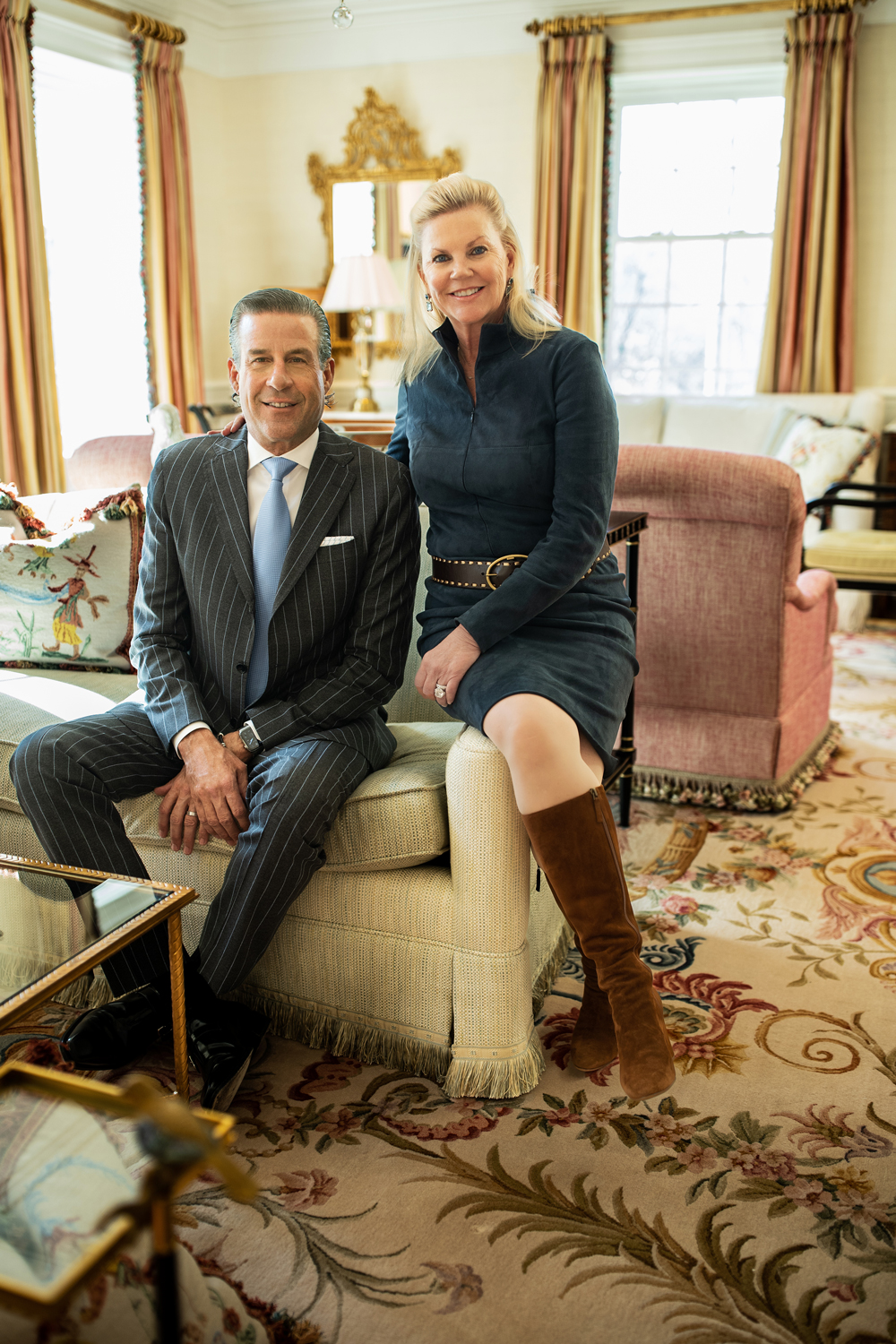
Now retired, John and Karen Arnold spend much of their time working with The Kindness Coalition and other volunteer commitments.
“We both grew up in central Pennsylvania; we raised our families in central Pennsylvania. We knew this is where we wanted our home together to be and that we wanted to give back to this community.”
He has also been a member of YPO (Young Presidents’ Organization) for more than 30 years. The organization, which calls itself a “global leadership community of extraordinary chief executives,” is known for its forums — a small cohort of trusted peers that members can turn to for insights and perspectives.
“My forum has been meeting once a month for the last 20 years. I’ve turned to this group for advice many times throughout my career and I’ve advised them based on my own experiences. Almost universally, the answer to any question can be found in that room,” John Arnold says.
The knowledge gleaned from years of YPO forum discussions has undoubtedly unveiled novel approaches to leverage the impact of the Arnolds’ philanthropy.
As the Arnolds reflect on this stage of their lives, they said they find great satisfaction in giving back. Up next — they are chairing the 2023 annual campaign for the United Way of Berks County.
“We both grew up in central Pennsylvania; we raised our families in central Pennsylvania,” Karen Arnold says. “We knew this is where we wanted our home together to be and that we wanted to give back to this community.”
